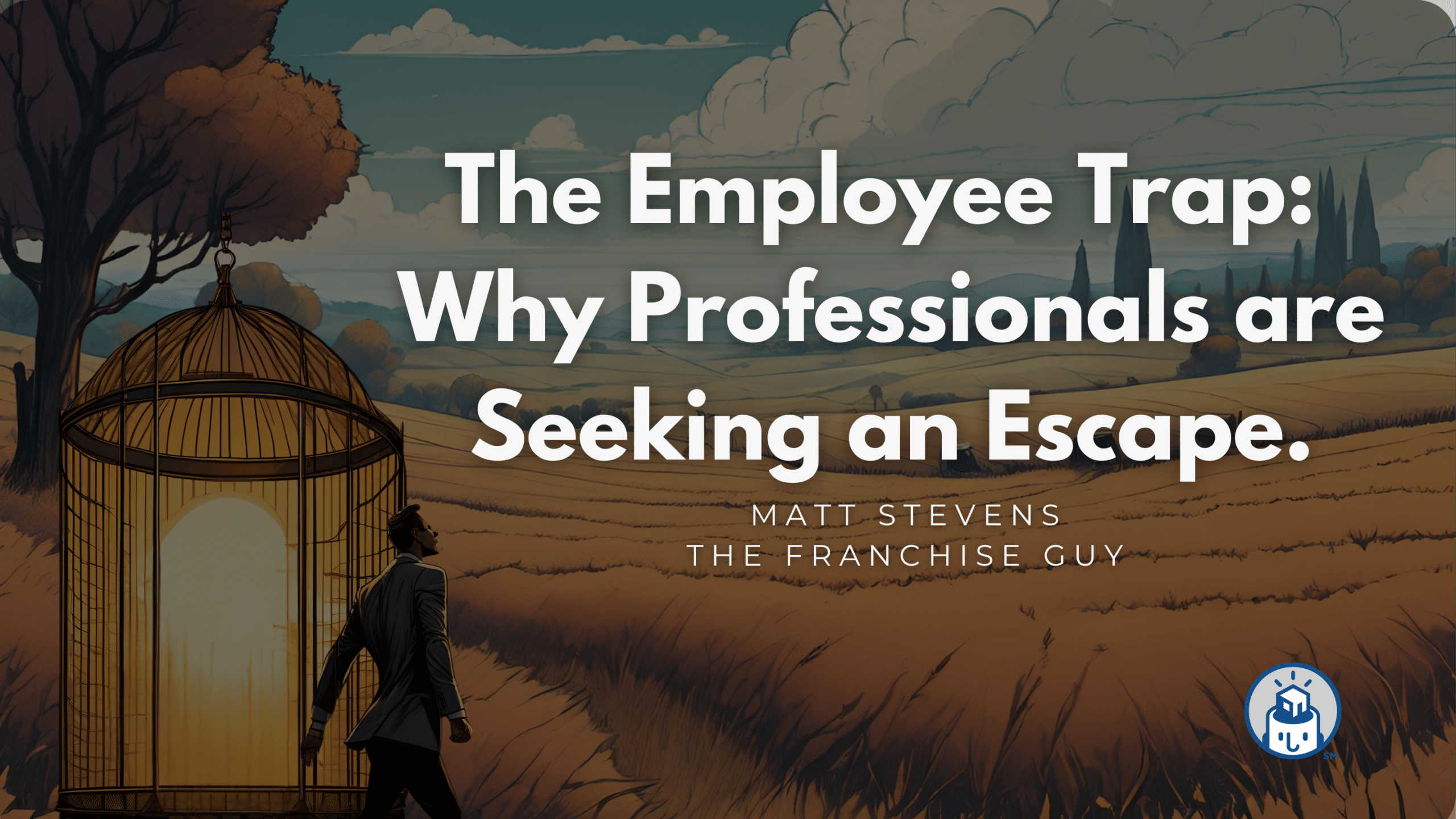If you’re working for “someone else,” the decision to go into business for yourself is a BIG one. And, making an investment in an existing brand and business model – while it makes the transition a bit easier – still requires a big leap of faith.
The last thing you need is to be pressured into a decision regarding a franchise that’s not right for you. That would be almost as bad as rushing into marriage and realizing you made a huge mistake, or buying a house that turns into a money pit!
With literally thousands of franchise systems, most entrepreneurs find the selection process daunting and can use a little guidance – and that’s where a professional franchise consultant comes in. A franchise consultant’s services are free because they are paid by the franchisor that you select.
So, what should you look for in a franchise consultant? After all, like investment and academic advisors and realtors, they’re not all created equal.
Choose someone who is more interested in you than themselves.
A good franchise consultant starts the conversation wanting to know all about you, your background, and what’s important to you and your spouse.
They should ask about your financial resources and what type of business experience you want to have. The more the franchise consultant knows about you and your goals, the better they’ll be at finding the perfect match. If they don’t show enough interest in you, find someone who does.
Share your short and long-term goals with the consultant. This makes it easier for the consultant to understand you and which franchises would help you achieve your goals. Once the consultant has learned all about you and what you’re looking to achieve, they’ll present you with the options that they think would be a good fit.
Make sure they get enough information before presenting concepts.
The consultant should know the intimate details of the franchises they’re presenting all the way down to the company culture. Sometimes, you have to go back to the drawing board – the best consultants have learned this.
Someone will call in and we’ll be talking about a business. I’ll ask, “What business are you considering?” They’ll say they’ve been looking at this franchise or that franchise. Really, it’s all about the day in the life of the franchise owner. As you’re looking at franchises, you want to be able to pick and choose which aspects of the day in the life of the owner you want.
What about the budget? It always comes up because it’s a constraint. It doesn’t make sense to talk about a $200K business if you can only invest $100K. Understanding the limits from a financial perspective are as important as understanding the person’s desires. In fact, I don’t promote that people go “all in” on a business.
Look for someone who you feel a genuine connection with.
When you’re making one of the biggest investments of your life, it’s better to “like” the person who’s guiding you through the process. When you have a genuine connection with your consultant, the relationship is based on mutual affinity and trust. Why settle for less?
Make sure you don’t feel pressured at any point during the process.
I think it’s a red flag when consultants automatically start pushing certain franchises. A good franchise consultant will not tell you which business to buy. The consultant’s job is to assess and interpret your dreams, strengths and options. They’re not supposed to convince you to buy into their best option.
Many consultants will say, “I have the perfect franchise for you. You can look at these other two…” but what they’re really doing is pushing the business that they have a vested interest in. They need to give you options so you can evaluate and compare.
Make sure you keep an open mind.
Good franchise consultants will ask you, “What kind of business do you want to do?” Service-based businesses are a lower investment, with a lower return. Even if someone doesn’t want to spend more than $175K, a consultant might say, “for comparison purposes let’s look at something like a $250K retail business so we can validate that a service-based business is right for you” or “the ROI or lifestyle you’re looking for would be served by a retail business.” Consultants must give people the opportunity to make those decisions.
A ‘Typical’ Experience with a Franchise Consultant
When working with a franchise consultant, the first thing that happens is the intro call, which leads to a confidential questionnaire and a consultation. Next, there are the weekly calls for a month or so while the entrepreneur works through the educational concepts.
At the end of the month, if they’re on track to finish the process, the funneling begins. Knock off the ones that don’t work and ask, “Do we need to go back to the drawing board?” The whole process usually takes 60 to 90 days, 14 or 15 calls at least. This is typical – that is if the consultant is really worth their weight.
Conclusion
Is buying a franchise right for you? If you’re risk-adverse, a franchise can provide a well-traveled path where the franchisor has already cleared many of the obstacles and paved the way for incoming franchisees. For the first-time business owner, climbing into a well-oiled machine can be comforting and financially rewarding.
As the aspiring franchisee, you don’t have to blindly look at thousands of franchises by yourself. You do have a choice, and I am happy to answer any questions you may have going forward. Just give me a call!
Sincerely,
Matt Stevens
“The Franchise Guy”





